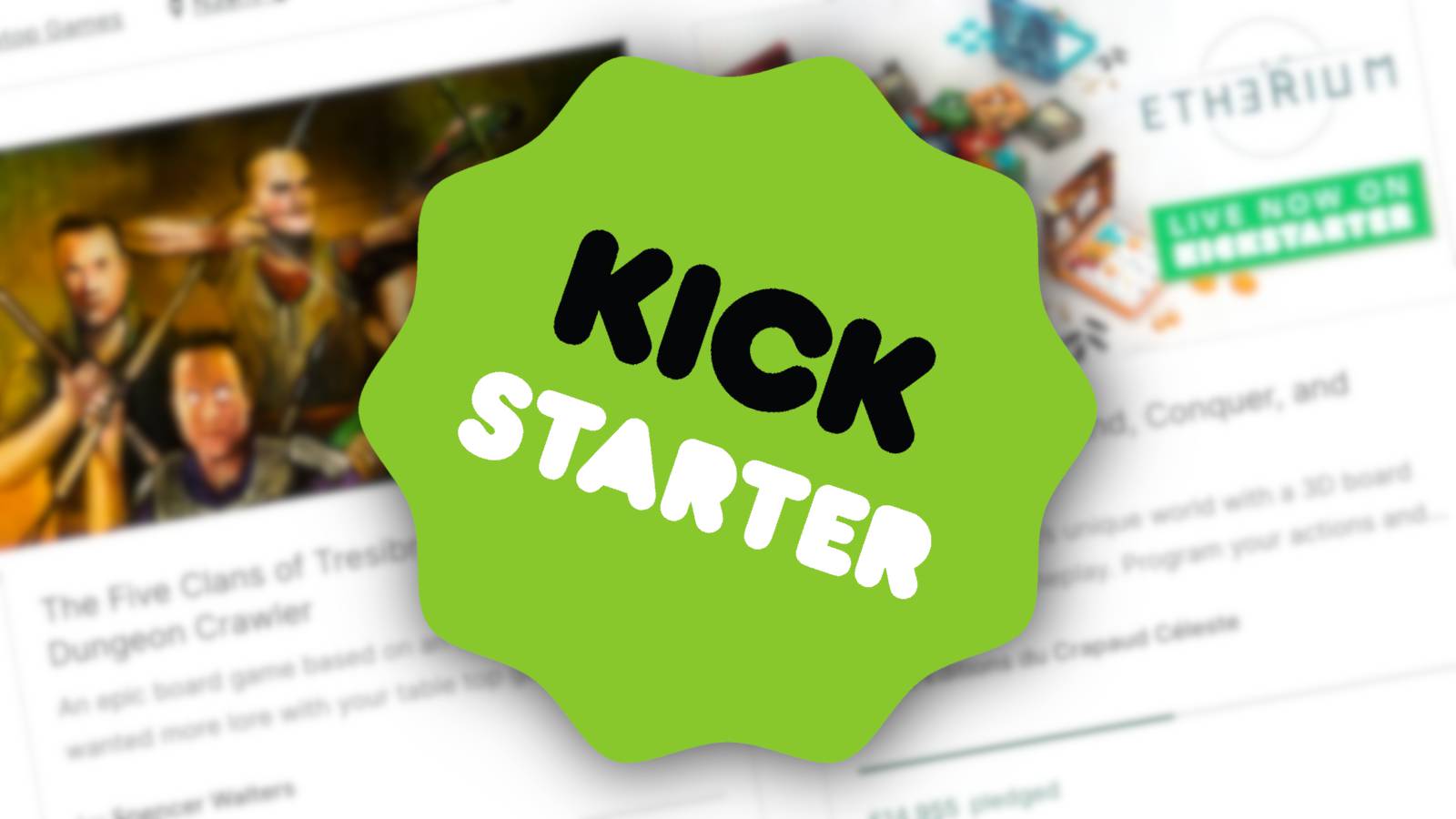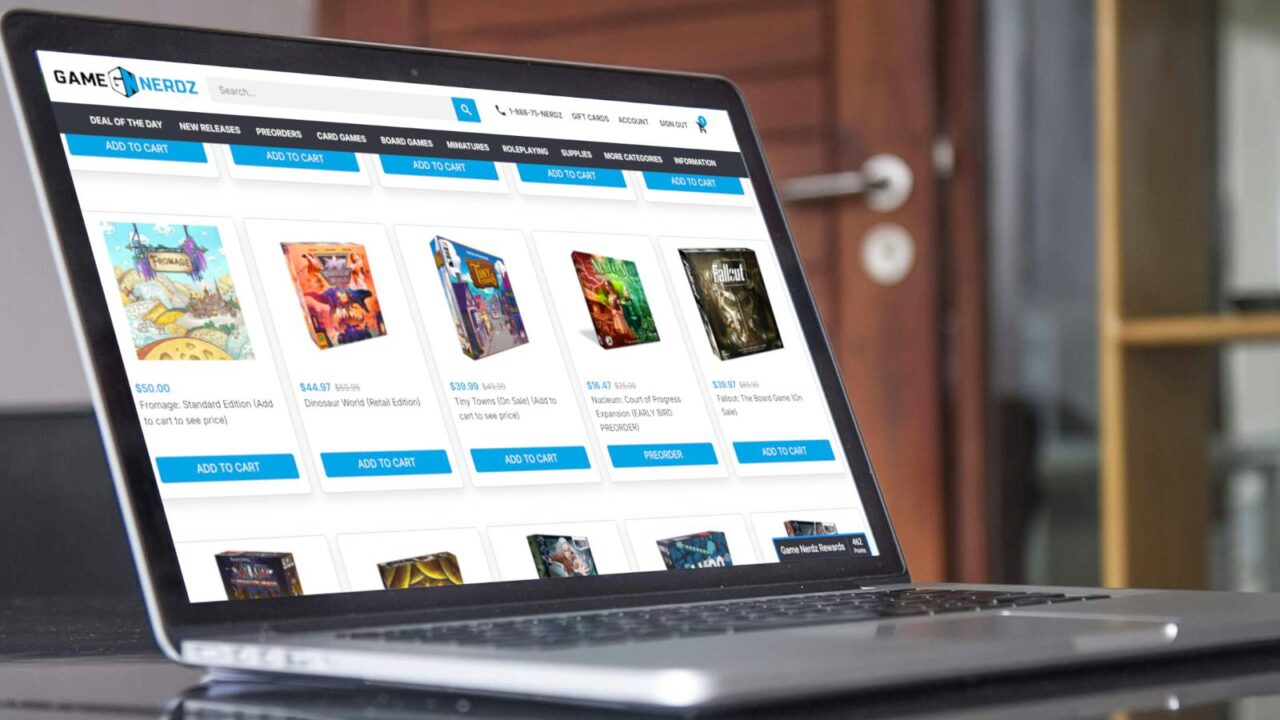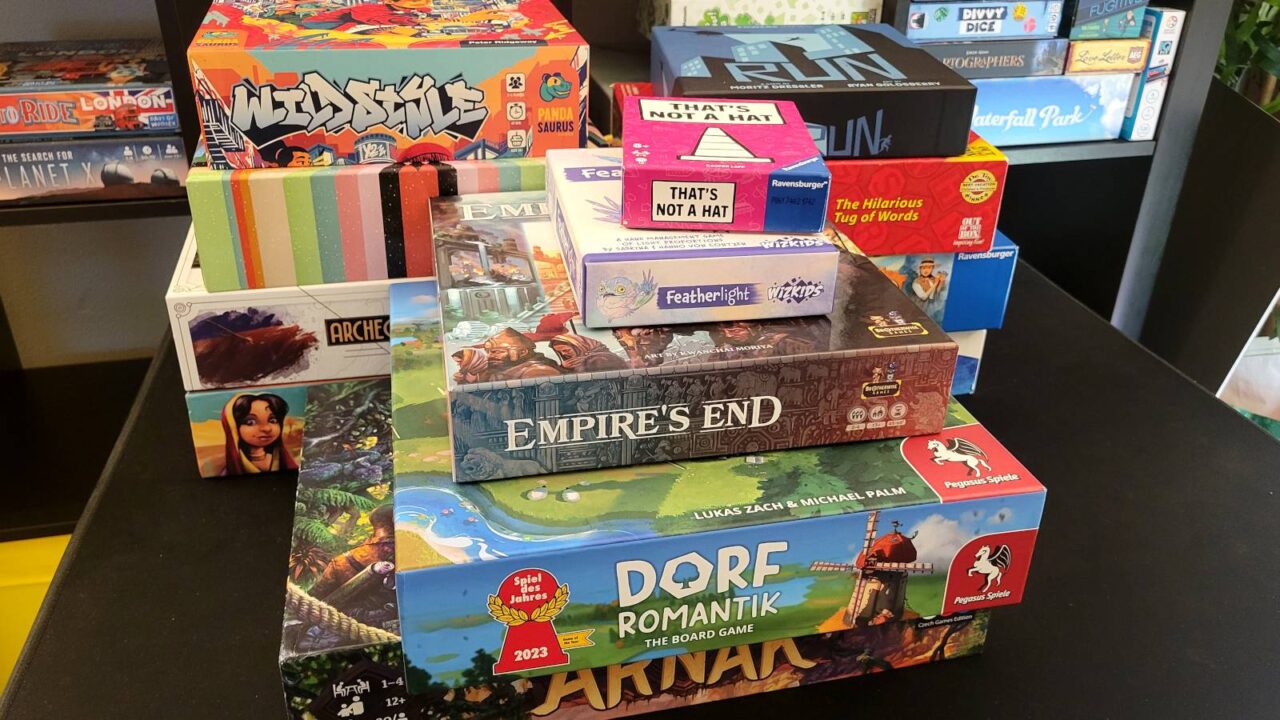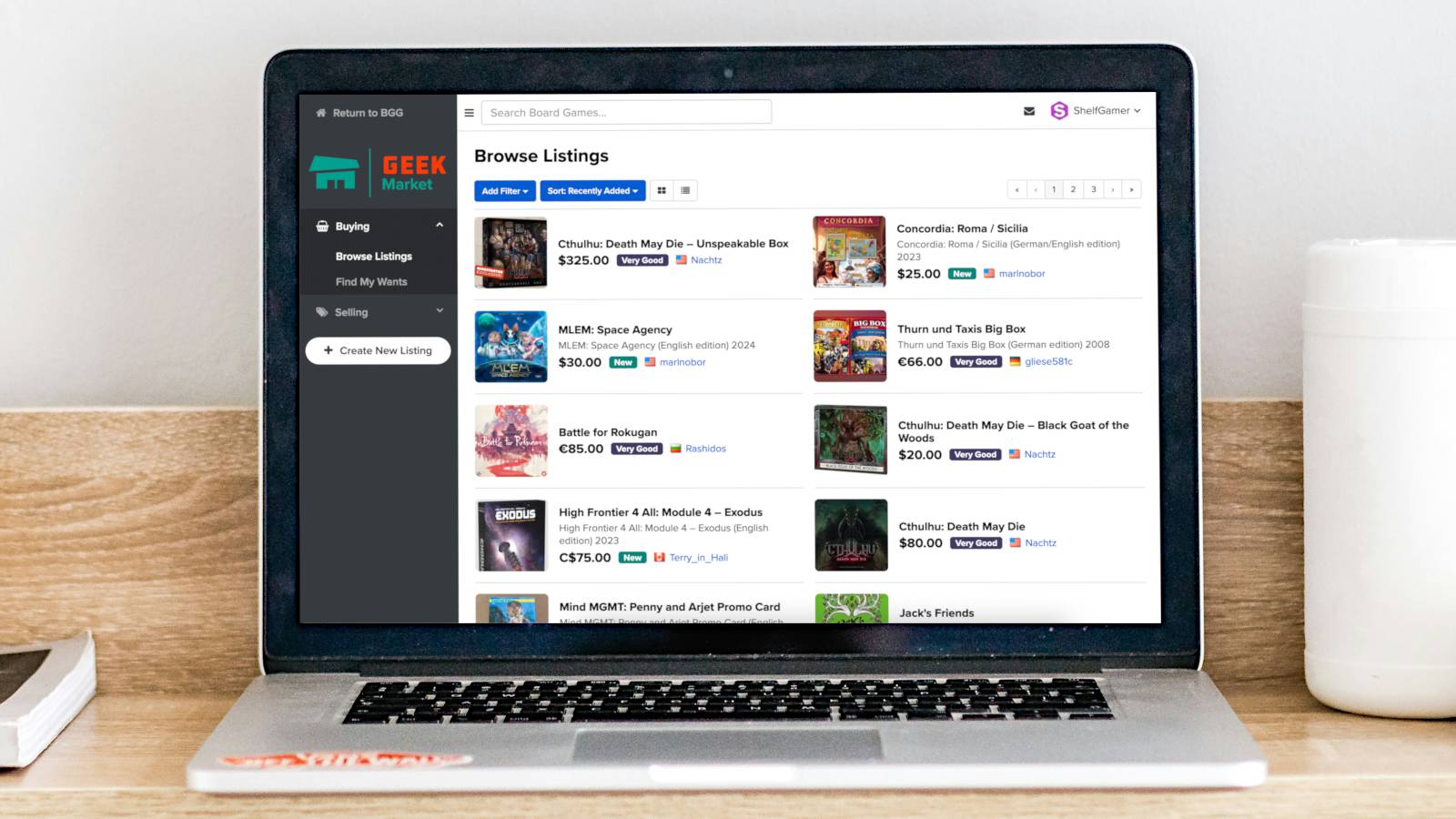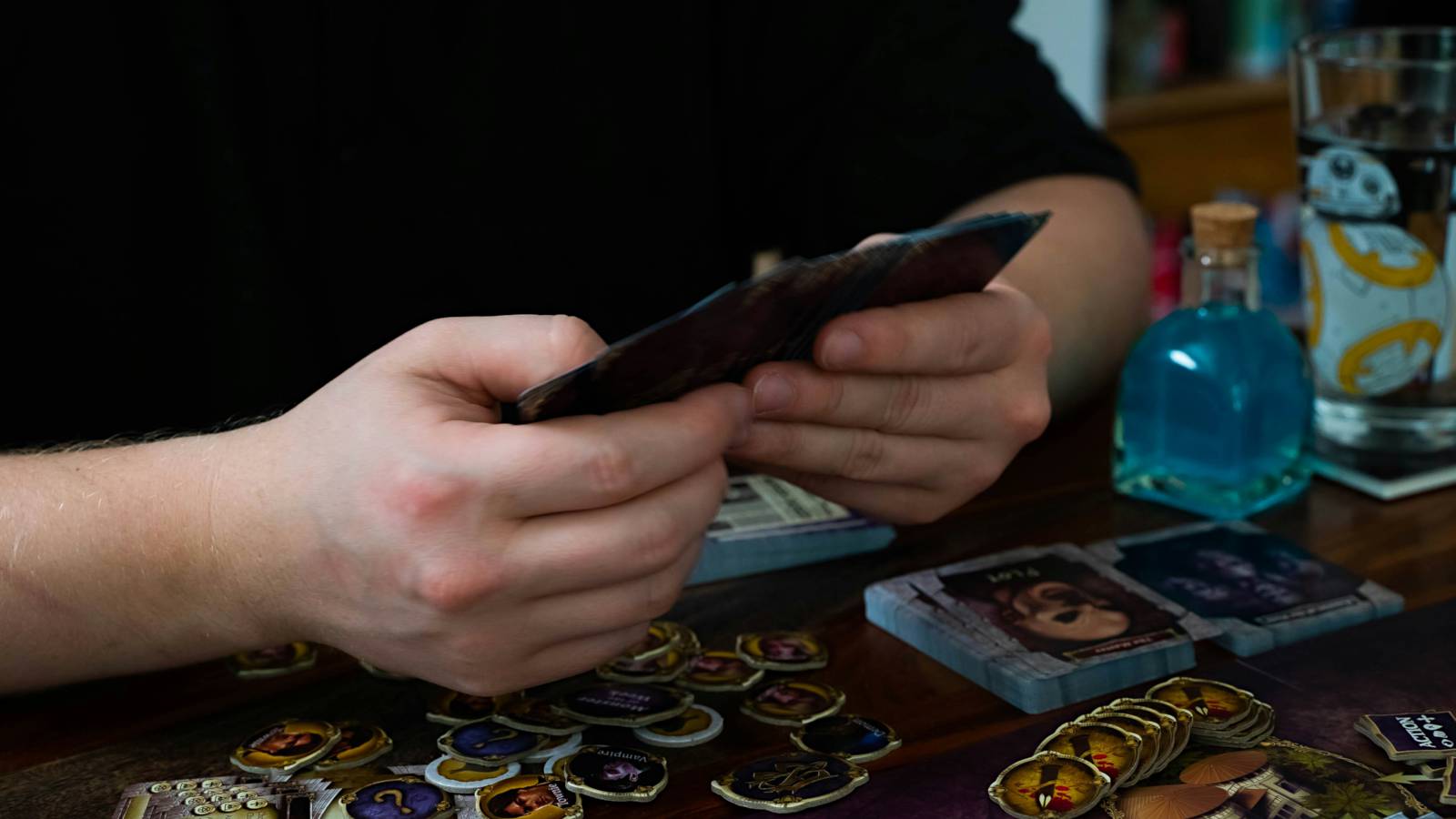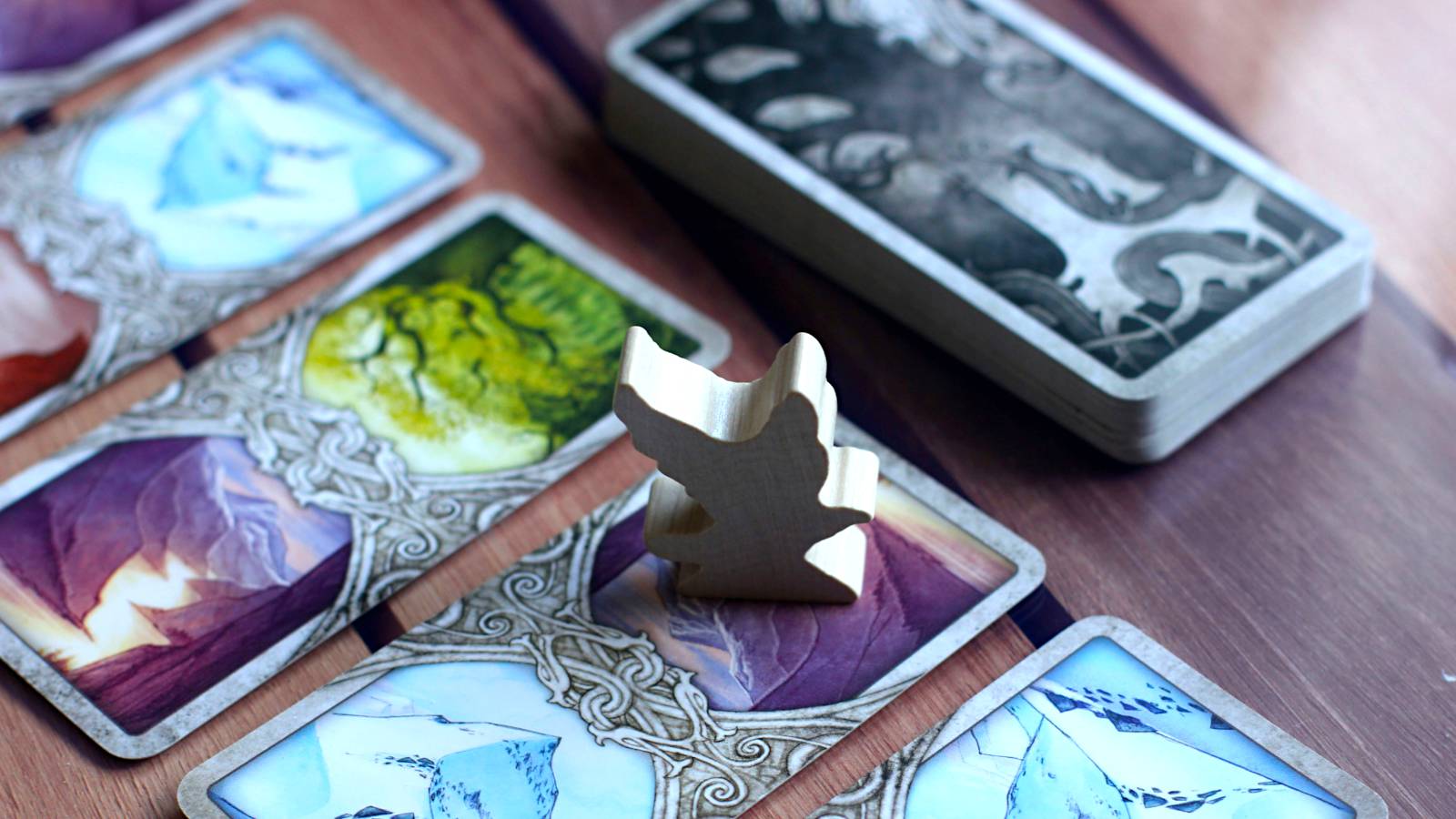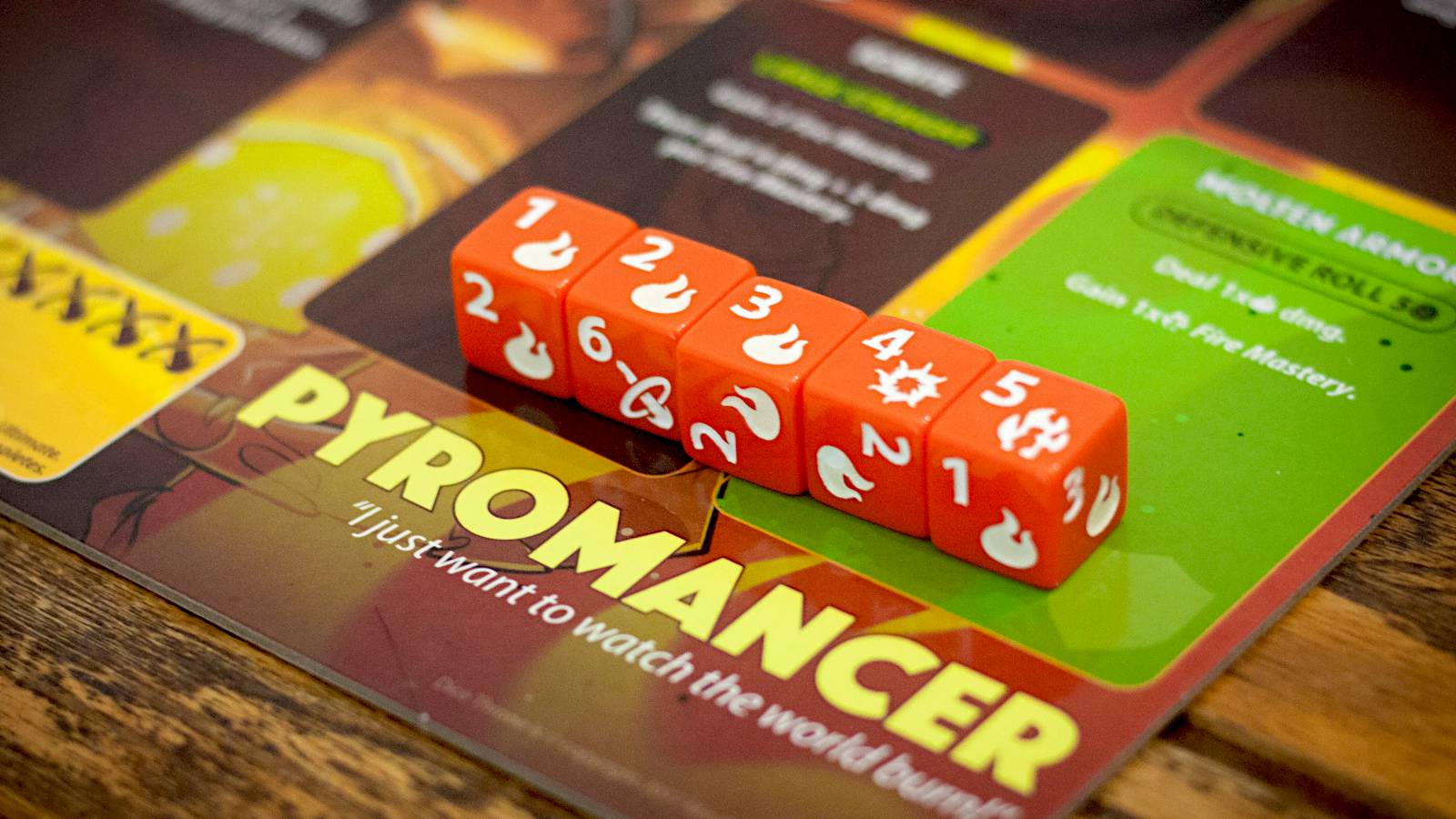Right off the bat, I want to be crystal clear: I don't look down on anyone who participates in the crowdfunding of board games. If you have the funds for it and if that's how you want to spend your money, who am I to stop you?
I know that crowdfunding has produced all kinds of great board games that likely wouldn't have existed without the support of backers, that crowdfunding has helped the board game industry to grow and flourish.
It's been a boon in many ways, and I recognize the value of crowdfunding platforms. I'd never say that the board gaming hobby would be better off without the likes of Kickstarter, because that simply isn't true.
But I will never be one of those backers. There are too many flaws and issues in the Kickstarter model that I have trouble overlooking, and they make it difficult to participate without feeling icky or uncertain about it.
Here are all the reasons that keep me from backing board games on Kickstarter. If you think I'm wrong about any of this, do let me know in the comments!
While the title of this article specifies Kickstarter, most of these points also apply to other crowdfunding platforms (e.g., Gamefound, Backerkit, etc.).
1. Game Quality Is Unknown
When you make a pledge on Kickstarter, you aren't buying a product. You're actually buying the promise of a product. What's portrayed in a Kickstarter campaign may or may not match up with what you end up getting.
And there are several factors at play here:
First-time designers. Crowdfunding is a great way for unknown designers to get their games in front of people, but there's no way to sidestep the fact that these designers are, indeed, unknown. They have no track record, so you have to blindly trust that their game will deliver on the experience promised.
And maybe that's not a big deal. If supporting indie game designers is more important to you than a few failed campaigns here and there, I will stand by you. (This is, admittedly, the weakest point of all the points in this article.)
Small-scale publishers. Independent publishers will always be at a disadvantage in any industry, but more so in the board game industry. Why? Because they don't have the same resources for long-term, in-depth R&D.
Smaller projects don't undergo the same rigorous testing that established publishers can conduct before they approve something for distribution. They may not be able to catch and fix all of the issues because they don't have enough playtesters. Or they may be rushed to market due to cash flow struggles.
Development is ongoing. Once a Kickstarter campaign is funded, it could still take several months (or even years!) before production begins. During that time, the game you backed may or may not continue to evolve, whether those changes are made to the rules, the components, the artwork, etc.
Sometimes, these changes come from continued playtesting. Other times, changes may be forced on the publisher due to circumstances beyond their control, like material shortages or broken business relationships.
And even when you're able to see the finished prototype in paid previews done by YouTube influencers, there's no guarantee the prototype will match the final game. (To be fair, many campaigns do have this as a disclaimer.)
Lack of hands-on, lived-in reviews. As a Kickstarter backer, you are essentially an early adopter, and all early adopters face the same dilemma: you don't know for sure how well this product will hold up over time.
Maybe the gameplay is shallow and repetitive. Maybe the components fade, warp, or even break over time. Maybe the setup and teardown are so lengthy and involved that the game never makes it to the table again.
You just don't know until you've actually "lived with" the game for a while, and there just isn't enough information on that front to make an informed decision when backing Kickstarter campaigns.
2. Risks of Delay or Non-Delivery
As it turns out, the risks are real: when you pay up front for the promise of a product later, many things can go wrong between the moment you pledge and the expected time of fulfillment for that product.
On the one hand, it's not uncommon for Kickstarter campaigns to have release dates that get pushed back, and pushed back, and pushed back. On the other hand, you have Kickstarter campaigns that don't have release dates at all!
You may have made a pledge with the expectation that you'd receive the game within a few months (as promised by the project timeline), but suddenly a year or two have gone by and you still have nothing to show for it.
The game you backed might never wrap up on development. Or if it does, the creator might run into manufacturing issues. Or maybe the creator gets the game printed but needs more money to get it shipped out, effectively holding the game hostage until you cough up more cash.
At the extreme end, you have high-profile examples like Mythic Games, who have mismanaged multiple campaigns like the ones for Darkest Dungeon and 6: Siege. (You can read personal experiences shared by users here, here, here, here, here, and here. Also, a Dicebreaker article here.)
Most recently, Mythic Games sat on HEL: The Last Saga for over 3 years, which funded in May 2020 with an estimated delivery of June 2021 yet still wasn't ready as of January 2024. CMON swooped in and bought the IP from Mythic Games, but it's unclear how long backers will still have to wait to see anything.
You might argue that Mythic Games is an outlier, but they're far from the only ones who have run problematic campaigns. Kingdom Death: Monster took over 3 years to deliver, Carnival Zombie over 2 years, Blood on the Clocktower over 2 years, and many—like Prism Dice—never delivered at all.
Lots of Kickstarter campaigns complete fulfillment without any delays or delivery issues, but the percentage that don't is simply too high for me to feel comfortable participating. Of all the frustrating aspects of Kickstarter, this one might just be the worst—and it makes me wary to jump in.
3. Anti-Consumer Patterns
The culture that surrounds crowdfunding has always left a bad taste in my mouth. Whenever I visit a campaign page, I can't help but feel like I'm being manipulated, like every element is there to manufacture artificial hype, as if they only care about separating me from my hard-earned money.
As a consumer myself, crowdfunding platforms give off antagonistic vibes. Call me cynical if you want—maybe I am—but here's why:
Kickstarter is primarily marketing. Back in the day, Kickstarter was mainly for indies who had no other way to bring their creative projects to life. But now? Kickstarter is overrun by established publishers who have turned the platform into an advertisement and pre-ordering machine. Why is this bad? Well...
Publishers offload their risks onto backers. Traditionally, publishers develop and produce their games on their own dime, then begin marketing when the games are close to release. If a game fails to reach market, the publisher is the one that must deal with the losses. The risks rest squarely on the publisher.
In modern Kickstarter culture, publishers have pushed that risk onto backers. Instead of risking their own funds to be recouped via sales, consumers are the ones risking their own cash. If a game can't be fulfilled for whatever reason—see the "Risks of Delay or Non-Delivery" section above—the backers are the ones who are left holding the bag.
Psychological exploitation. Kickstarter's tiered pledge system seems designed to milk backers for as much money as possible. You aren't just being asked to help fund development, but to spend disproportionate amounts of extra cash if you want to "unlock" bonus content.
If you pledge X amount, you only get the base game. If you pledge X+Y amount, you get the base game and some cool swag. If you pledge X+Y+Z amount, you get exclusive Kickstarter-only bonuses that are sold as "never to be available again, so you better get them now!"
These limited-time offers prey on the fear of missing out (FOMO) of board gamers, who may feel compelled to unlock everything because they don't want to be the fool who only backed the base game and missed out on the awesome extras that make the game even better.
Incomplete game experiences. Kickstarter exclusives aren't too bad when they're purely cosmetic. But when they impact gameplay? It's aggravating, to say the least. It's particularly bad when the publisher obviously withheld important gameplay elements to be locked behind higher-tier pledges.
If that Kickstarter game eventually reaches retail distribution, those Kickstarter-only elements will be missing from the retail version. It almost feels like a threat: "If you wanted the full experience, you should have Kickstarted the game."
In case you think this is a straw man argument, consider reading this user's experiences with the Kickstarter game Thunderstone Quest, which came to retail with missing content.
Why does this grind my gears so much? Two reasons.
First, anyone who wants to get a Kickstarter game after the fact has no way to do so except to overpay on the secondhand market. They miss out through no fault of their own and it sucks to play what feels like an incomplete game.
Second, it causes confusion when gamers have to sort through all the different versions of the game and figure out what's included (or not included) in the versions available to them. It's just really annoying.
4. Kickstarter Doesn't Refund Money
A lot of these risks would be manageable if Kickstarter would guarantee refunds to backers for funded projects that fail to deliver.
But Kickstarter makes no such promise.
When you pledge money to a Kickstarter campaign, you're entering an agreement with the creator of that campaign, not with Kickstarter itself. In fact, Kickstarter is not a store. They simply facilitate relationships between creators and backers. They're the middleman.
What this means is, if something goes wrong after your pledge is processed and you decide that you want your money back, the creator is the one who has to issue the refund. Kickstarter washes their hands of it all.
Indeed, Kickstarter explicitly states that they don't do refunds:
Kickstarter is not a store and we do not issue refunds. When you back a project, you're supporting a creator's right to try to make something new—and agreeing to go along for the ride.
[...]
If you're interested in having your collected pledge refunded, you'll need to reach out to the creator directly. Keep in mind that if the funds have already gone towards producing or shipping rewards, then a refund may not be possible at this time.
Kickstarter Support
What happens if the creator doesn't want to honor your refund request? Or you can't even get a hold of the creator to request a refund? Or they already spent all the money and literally can't refund you?
Not much you can do.
As a last resort, you might be able to issue a credit card chargeback. However, credit card chargebacks should be used sparingly. Too many credit card chargebacks can get you banned on Kickstarter or flagged by your credit card company for suspicious behavior.
Personally, I choose not to do business with companies that refuse to offer a reasonable refund policy. I'd rather just avoid Kickstarter altogether than deal with the risks, the anxiety, and the possible chargebacks.
5. Too Much Effort to Keep Up
No one can deny the impact that Kickstarter has had on the hobby. The crowdfunding platform has truly made it possible for anyone to put forth their ideas and strive to get them created.
According to BoardGameGeek, there are over 4,700 board games marked with a release year of 2023. Many of them were Kickstarter projects.
Don't get me wrong: I love that there are so many board games out there to satisfy all sorts of player types and niches. But I also find it difficult to keep up with all the new announcements every week.
Sorting through the sheer volume of board games on Kickstarter is basically a full-time endeavor. Parsing the campaign details, figuring out the various pledge tiers, checking the creator's track record—I'm often overwhelmed.
Plus, I don't want to dedicate space in my brain to keeping track of and avoiding all the bad companies who have run terrible campaigns.
Between my job, my home responsibilities, and my limited leisure time, I don't have the time or energy to concern myself with Kickstarter. The value just isn't there for me. (It's the same reason why I avoid Game Crafter.)
6. Plenty of Great Retail Games Out There
Lots of great games have come through Kickstarter, but there are so many amazing games that didn't come through Kickstarter. I could spend my entire life on just those games and still barely scratch the surface of what's available.
Why bother with Kickstarter when I can stick with tried-and-true retailers—whether they're local game stores or online shops—who can deliver in reasonable timeframes, at reasonable prices, with reasonable return policies?
And, in most cases, Kickstarter games that are worth their salt will eventually end up in retail stores anyway. All I have to do is wait and I'll be able to snag them without the risks that come with being a backer. (If a game never makes it to retail, I consider that a bullet dodged.)
Sure, the waiting period for a Kickstarter game to hit retail can be years. But there are lots of other board games to keep me busy in the meantime.
7. I Already Have Enough Games
This last point is probably the biggest one for me.
I've set an arbitrary max limit for my board game collection: the capacity of my 4x4 Kallax shelf. Once that shelf is filled, the only way I'm allowing myself to get more games is by replacing what I already have. For every game that comes in, I must cull a game (or multiple games) of equivalent shelf space.
Which makes it easy to avoid Kickstarter culture.
If you have all the shelf space and disposable income in the world, then I can see the appeal of Kickstarter games. How else can you get a constant stream of novelty experiences with new games and deluxe productions? It's a perfectly valid way to enjoy board gaming as a hobby.
But if you're like me and you don't have copious space and money to burn, then Kickstarter is just an unnecessary source of temptation. I want to be content with my current collection! Kickstarter gets in the way of that with its endless promising of games that may or may not be better than what I already have.
So, if there's an amazing game on Kickstarter that's perfect for me, I'll wait until it hits retail before buying it. And if it never comes to retail? Well, that's fine because I still have so many games I love.
I don't need Kickstarter, and I'm okay with that.
What about you? Tell me how you feel about Kickstarter board games! Whether you agree or disagree, I'd love to hear your thoughts in the comments below.


